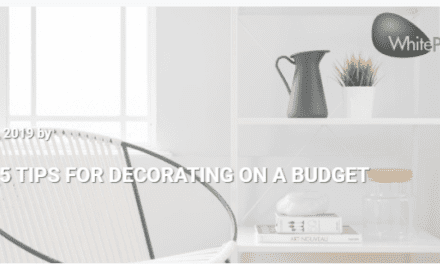Here’s what 7 people did to get their house sold quickly.
We all want to sell quickly. This article gives you some ideas as to why your house may not be selling as fast as you would like.
1. Lisa made sure their house was super clean and super tidy. Pretty basic really.
It’s vital to treat your house as a sales product. It will not sell itself, so spend a little bit of time and effort to make it as appealing as you can. Get a friend to give you an honest opinion on how your home looks to someone else. Go to open houses and check out what looks great and copy it.
Solution
Do what Jane did and spend the extra hours cleaning, decluttering and tidying. It does help. People do not need to see the 20 family photos or your passion for the Western Bulldogs or the Chicago Bulls. You are planning to move so get organised and start packing now. Remember the motto ‘less is more.’
2. Jayde gave her property a makeover after getting some professional advice.
If you haven’t thought about or invested in home styling/staging, try it. The trained eye of a home stylist can set you up to appeal to your target market. They provide independent, objective, realistic and emotionally disconnected professional advice. The information can include furniture placement, hiring in furniture to colour choices. Jayde valued this advice and spent the extra on staging to make the sale process simpler and quicker.
Or if you want to go it alone, check out some great home styling blogs for inspiration. Look at low cost, quick facelifts, like a new coat of paint, a better clean up inside, or some beautiful plants in the garden. It could even be as simple as new fittings or handles in the kitchens or bathroom.
It might be that a small renovation is needed, and if it will increase your odds of a good sale and price, it’s probably a better alternative than sitting on the market indefinitely.
Solution
Weigh up how much you could invest in low-cost improvements which are most likely to improve your chances of a great sale result. Talk to the experts or read their blogs. Be careful not to overcapitalise (there are no guarantees), and remember that even a small effort could yield a great the return.
3. Sally went shopping and compared her home to all those for sale in the area.
You may have done a tonne of homework on selling your house, but don’t forget to check out the competition. Get a handle on how your place measures up against similar properties; in architecture and style, price, size, bedroom and bathroom numbers, land and yard area, proximity to amenities, quality of interiors, style of presentation, and everything in between.
Don’t just check out the house. Have a snoop at the way the home is decorated, how they are managing the open house process, are they using a laptop to collect all the buyer details. Note down how the house is being marketed and the choice of a sales method, i.e., auction, set price, or price range. See what’s popular and what people are discussing.
Get out to any local open inspections and auctions. Talk to other buyers at those homes and gather insights.
And once you know your competition, you are then in a position to set a price tag that will ensure your home sells efficiently and quickly. When you can compare like with like, you’re ready to go to market.
Solution
Comparing doesn’t mean making your property look like everyone else’s. It’s about getting in touch with your local market and the trends or issues that might impact your selling your house. Check out your competition. Your home needs to outshine them by at least 10%.
4. Jacob made sure he had the right price on his home from the start.
If the price is not right, it won’t sell. Don’t get caught up with the idea that all homes are being undervalued as this is not the case. In regional and country areas, the opposite occurs with homes constantly over priced. Be objective when you compare your home with other homes on the market. Be realistic, be fair and be honest: Do you ‘homework!
There are a couple of ways that you could end up with an overpriced home. You set too high a price, hoping to find a buyer who would bite. You were not honest with yourself regarding the condition of your home. Or you employed an agent who over-priced your home so that they could secure the listing.
Real Estate markets can be affected by factors outside your control. If your house has had minimal or no response, it’s time to be realistic about its real value. Stay up to date with what is happening in your region and area. Pricing your house slightly lower than the most houses like yours, can make for a quick and easy transaction as well as encourage a bit of competition too.
Consider both these exact scenarios taken from a reputable real estate industry valuation site:
- An agent priced a home at $880,000- $920,000 in April 2016. The home finally sold in Late November for 819,000.
- Another home listed for sale for $829 -$849,000 in February 2016 has not sold and is now being marketed at a price of $779,000. Significantly lower than its high starting price.
Even when I crunch the numbers, using this real estate industry valuation site, on this home, I could not get the homes value past $730,000. A good reason why this home is still not selling!
Solution
Get at least 3 to 4 independent property valuations, using all the free online services available to you. Visit open houses in your area of homes like yours, which will give you comparisons. Over-valuing is one of the main reason a house doesn’t sell.
5. Jane used an online photography service which saved her loads of money and time.
One of the most important tools you have at your disposal as a seller is good quality photos of your home. Photos can give buyers a better idea of your property’s size and appearance and may be the factor that helps them decide whether or not to arrange an inspection. If your photos look like they were taken by an amateur, consider hiring a professional to replace them.
Another way to improve your photos is to ensure that your home is spotless and well-staged before you take them. If there is clutter in the background, it will distract buyers rather than entice them. Include photos of any unique or special features, such as the backyard, fireplace and swimming pool.
Solution
Photos spark interest and are one of the most important ways buyers connect with a home. Be creative, use a photographic enhancement service or pay the professionals.
6. Sarah picked the best way to sell her home that suited her.
Sometimes there’s nothing wrong with your house at all: It’s priced right and is well-maintained. But your agent could be the problem: Your agent needs to be an excellent communicator, have database management systems in place and know your home intimately. Unfortunately, some agents have little to no personality, some are burnt-out, some don’t care, and others have minimal social skills. Check this blog out too. What to look for in a real estate agent?
We all know that selling a home is stressful. Don’t add to that stress by allowing yourself to be pressured into a method of sale by an agent that you do not feel comfortable with This is your home, sell it your way. Sarah chose to sell her home using an agent only for their database. This worked a treat. She managed the open houses, any inspections, follow up and the negotiation. Plus she negotiated a reduced commission and saved a significant amount by doing this.
Solution
Choose an agent you would invite to lunch. If you don’t find one who your trust then consider DIY. If you are already contracted to an agent and are not happy, then consider a timely breakup, moving on to greener pastures.
7. Julie knew that most buyers had done their research.
Don’t be the seller who thinks just because my home has been on the market for only one week and you get a good solid offer that there is someone else out there ready to make a higher one. There is usually only 1 to 2 buyers for most homes. Buyers are smart, they know the market, they know what they want. They are probably more aware of the local market than you are.
Solution
If you get an offer begin the negotiating phase. If you are selling yourself, continue to conduct inspections, and if you are using an agent request, they do the same. Until the contracts are signed the sale in not final.
More blogs
What to look for in a real estate agent?
How to sell your house yourself?






